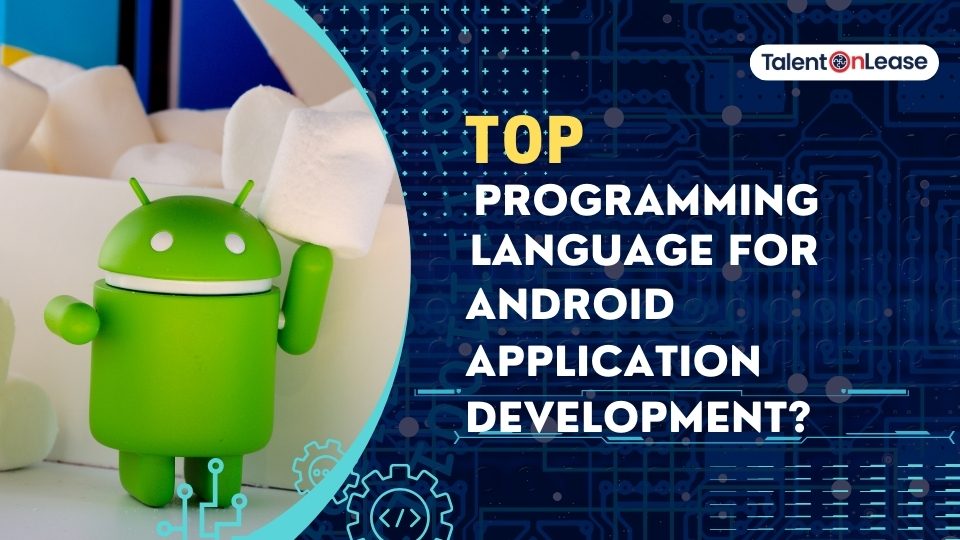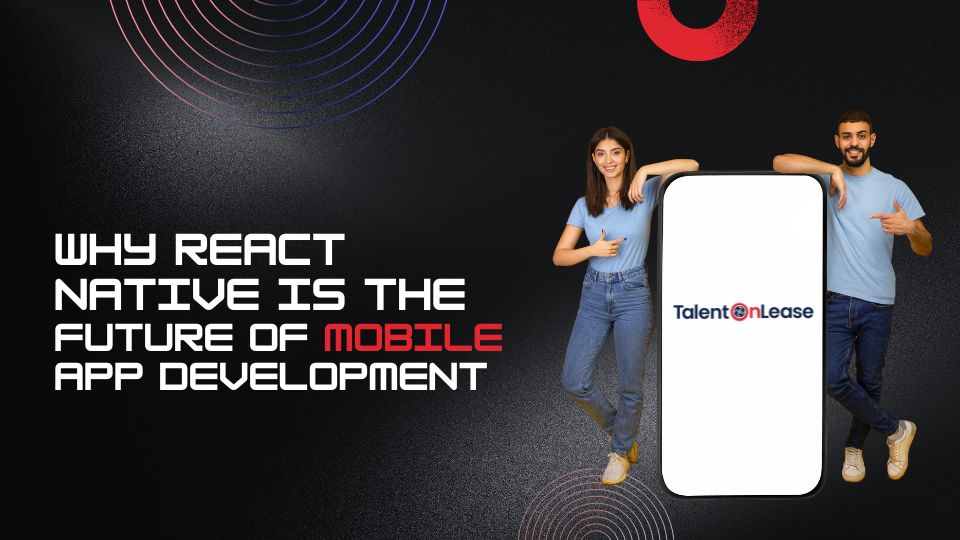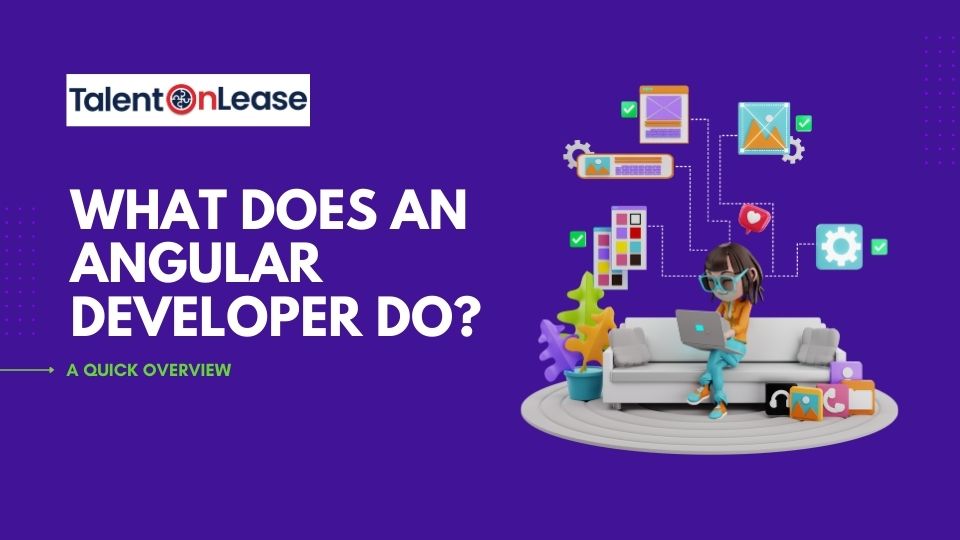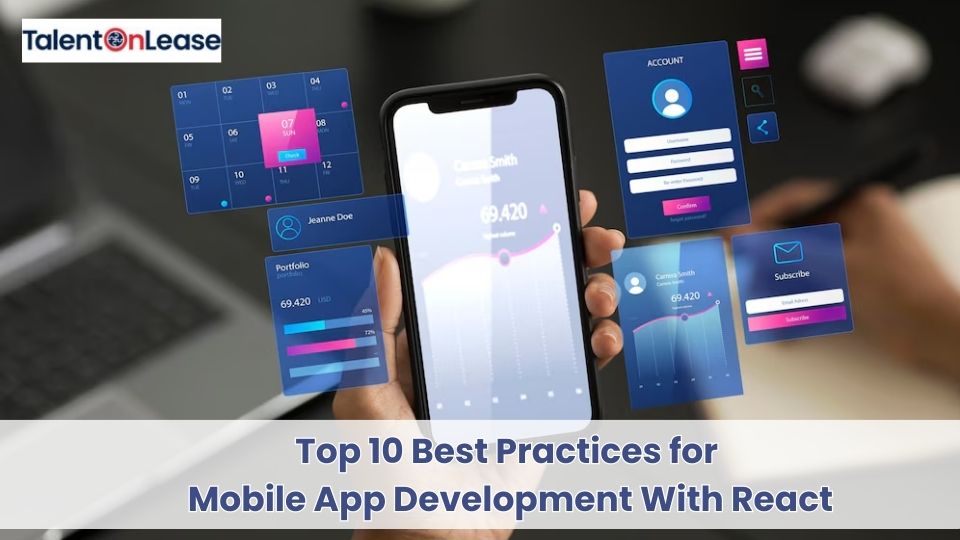Which Programming Language is Used for Android Application Development?

With the explosive growth in mobile applications, language for Android app development has become a crucial consideration for developers and a valuable asset for companies. Choosing the right language can significantly impact the app’s performance, scalability, and user experience, making it essential for businesses to make an informed decision.
Choosing the right programming language significantly influences key aspects of an Android app, including performance, user experience, development time, and ease of maintenance. Selecting a language that aligns with the app’s goals and technical requirements ensures a smooth development process and a high-quality.;
In this article, we’ll explore the primary programming languages used for Android app development, their benefits, and how to select the best one for your needs. And if you’re looking for top Android developers, Talent On Lease has skilled professionals ready to bring your app idea to life.
Programming Language for Android App Development: Why It Matters
The programming language you choose can significantly impact:
- Performance: Some languages are faster and more efficient for mobile processing.
- Development Time: Languages with simple syntax and robust tools speed up development.
- Community and Support: Popular languages offer extensive libraries, frameworks, and a strong support community.
Understanding these factors can help you align your language choice with project requirements, leading to a smoother development process.
Most Popular Android Development Programming Languages
Android development is primarily associated with two official Google-recommended languages, Java and Kotlin. However, other languages like C++, Python, and JavaScript are used for specific scenarios. Let’s examine each in more detail.
Java: The Classical Language of Android

Java has been central to Android development since the beginning. Known for its stability and versatility, Java is a favorite in Android Studio and remains a popular choice.
Benefits
- Robust Libraries: Extensive libraries for data processing, network communication, and UI.
- High Performance: Suitable for high-transaction applications that demand reliability.
- Huge Community: Abundant resources, support, and third-party tools due to Java’s age and popularity.
Drawbacks
- Verbose Syntax: Java can be cumbersome to write and maintain.
- Steeper Learning Curve: Java’s object-oriented syntax can be challenging for beginners.
Talent on Lease Note: Looking to hire experienced Java developers for Android? Talent On Lease has professionals skilled in building high-performance applications with Java.
Kotlin: The Official Language for Modern Android Development

Developed by JetBrains and officially recommended by Google, Kotlin offers a modern, concise syntax, making it the preferred language for Android.
Advantages
- Concise syntax: less boilerplate code, faster development, and cleaner code.
- Interoperability with Java: Perfectly compatible with Java, allowing the use of existing Java code.
- Advanced Safety Features: Null safety and enhanced error handling reduce app crashes.
Drawbacks
- Smaller Community than Java: While growing, Kotlin has a smaller support community and library selection.
- Learning Curve for Java Developers: Java developers may take time to adjust to Kotlin.
Other Suitable Programming Languages for Android Development
While Java and Kotlin dominate, other languages like C++, Python, and JavaScript have specific applications.
C++: For High Performance and Game Development
- Used in Android Native Development Kit (NDK) for resource-intensive applications, such as games.
- Pros: Fast execution, direct memory access, ideal for complex calculations.
- Cons: Heavy syntax and challenging debugging, especially for beginners.
Python for AI-Based and Prototype Applications
- Although not native to Android, tools like Kivy and BeeWare allow Android development with Python, particularly useful for AI-based apps and prototyping.
- Pros: Easy to learn, concise syntax, strong libraries for data science and AI.
- Cons: lower performance and fewer Android-specific libraries than Java and Kotlin.
Cross-Platform Development: JavaScript (React Native)
- JavaScript frameworks like React Native enable cross-platform development for Android and iOS.
- Pros: Single code base for Android and iOS, faster development, large community.
- Cons: Limited Android API access; performance depends on third-party plugins.
Comparing Programming Languages: Which Ones to Use?
Choosing a programming language depends on several factors:
Developer Experience Level
- Beginner-friendly: Python and Kotlin offer easier syntax for beginners.
- Experienced Developers: Java and C++ are suitable for complex applications.
Project Requirements
- Performance Needs: C++ and Java are performance-oriented.
- Rapid Development: Kotlin’s concise syntax suits rapid prototyping.
- Cross-Platform Support: For Android and iOS, consider JavaScript with React Native.
Community and Support
- Java has extensive community support, making it easier to find solutions and resources, while Kotlin is rapidly growing in popularity.
Hiring Requirements
- Hiring the right developers can make a big difference. Talent On Lease can connect you with skilled Java, Kotlin, and other Android-friendly language professionals.
Setting up Android Development in Your Target Language
Once you’ve chosen a language, here are essential tools and resources:
Essential Tools
- Android Studio: Official IDE for Android development.
- Gradle: For build automation and dependency management.
- Android SDK: Complete toolkit for developing and testing Android apps
- Testing Tools: Emulators, Android Debug Bridge (ADB), and more.
Learning Materials
- Courses: Platforms like Udacity, Coursera, and Udemy offer Android-specific courses.
- Community Support: Reddit, Stack Overflow, and GitHub are excellent forums
- Documentation: Official Android documentation by Google is a must.
Future Trends in Android Programming Languages
As technology evolves, so do Android programming languages. Key trends include:
- Kotlin Multiplatform: Allows code sharing across mobile and web applications.
- Cross-Platform Solutions: Platforms like Flutter and React Native are gaining popularity, enabling developers to target both Android and iOS with a single code base.
Conclusion
Choosing the right programming language depends on project requirements, the team’s experience, and desired scalability. Java remains strong for complex, high-performance apps, while Kotlin is ideal for modern, clean, and rapid development. C++, Python, and JavaScript each offer unique benefits for specific use cases.
Talent On Lease connects you with experienced Android developers proficient in Java, Kotlin, and other languages. Empower your app with the right language and begin building innovative Android applications today.











